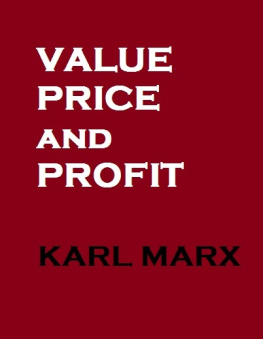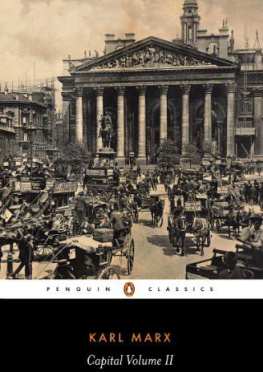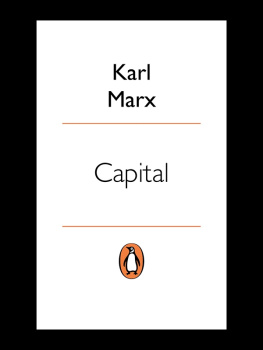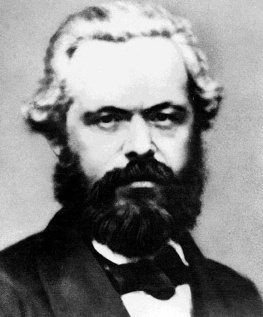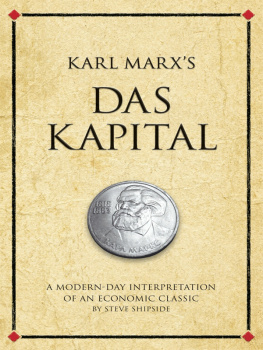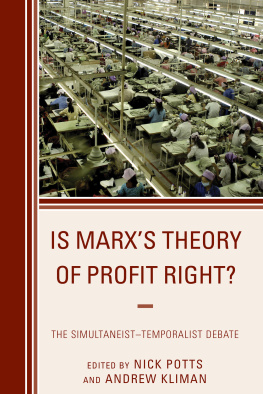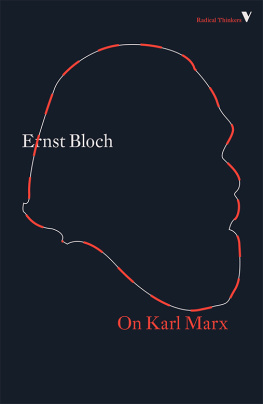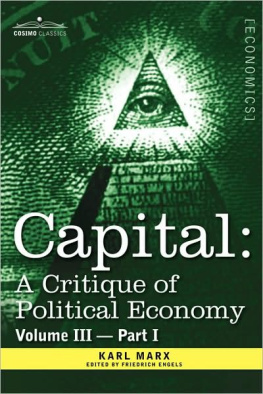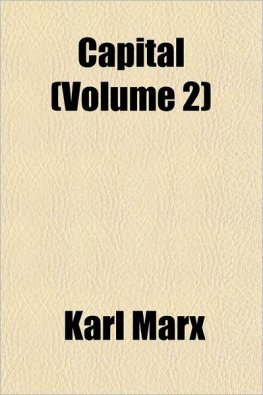Karl Marx - Value, Price and Profit
Here you can read online Karl Marx - Value, Price and Profit full text of the book (entire story) in english for free. Download pdf and epub, get meaning, cover and reviews about this ebook. year: 1971, publisher: Routledge, genre: Romance novel. Description of the work, (preface) as well as reviews are available. Best literature library LitArk.com created for fans of good reading and offers a wide selection of genres:
Romance novel
Science fiction
Adventure
Detective
Science
History
Home and family
Prose
Art
Politics
Computer
Non-fiction
Religion
Business
Children
Humor
Choose a favorite category and find really read worthwhile books. Enjoy immersion in the world of imagination, feel the emotions of the characters or learn something new for yourself, make an fascinating discovery.
- Book:Value, Price and Profit
- Author:
- Publisher:Routledge
- Genre:
- Year:1971
- Rating:4 / 5
- Favourites:Add to favourites
- Your mark:
- 80
- 1
- 2
- 3
- 4
- 5
Value, Price and Profit: summary, description and annotation
We offer to read an annotation, description, summary or preface (depends on what the author of the book "Value, Price and Profit" wrote himself). If you haven't found the necessary information about the book — write in the comments, we will try to find it.
Value, Price and Profit — read online for free the complete book (whole text) full work
Below is the text of the book, divided by pages. System saving the place of the last page read, allows you to conveniently read the book "Value, Price and Profit" online for free, without having to search again every time where you left off. Put a bookmark, and you can go to the page where you finished reading at any time.
Font size:
Interval:
Bookmark:
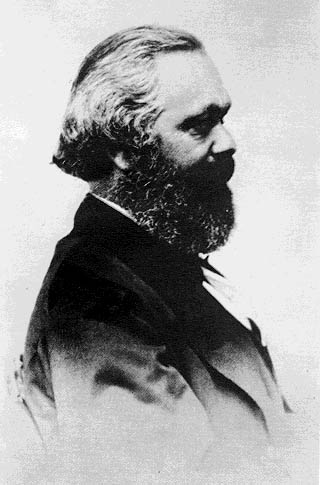
Speech by Marx to the
First International Working Men's Association, June 1865
Source : Marx, Karl. Value,Price and Profit. New York: International Co., Inc, 1969;
Written : between end of May and June 27, 1865;
First published : 1898;
Edited : by Eleanor Marx Aveling;
HTML Mark-up : Mike Ballard, miballard@stanford.edu,1995; Proofed : and corrected by Brandon Poole, 2009,Mark Harris 2010.
eBook prepared by: J Eduardo Brissos 2011.
by Edward Aveling
1.
2.
3.
4.
5.
6.
7.
8.
9.
10.
11.
12.
13.
14.
Marx Engels Archive | Economics Index
Source : Marx, Karl. Value, Price and Profit. New York: International Co., Inc, 1969.
Transcribed : by Brandon Poole.
The present work is an address delivered by Karl Marx at two sessions of the General Council of the First International on June 20 and 27, 1865. The circumstances which led to this report are briefly as follows:
At the session of the General Council on April 4, 1865, John Weston, an influential member of the General Council and English workers representative, proposed that the General Council should discuss the following questions:
- Can the social and material prospects of the working class be in general improved by wage increases?
- Do not the efforts of the trade unions to secure increases have a harmful effect on other branches of industry?
Weston declared that he would uphold a negative answer to the first question and a positive answer to the second one.
Westons report was delivered and discussed at the session of the Council on May 2 and 20. In a letter to Engels of May 20, 1865, Marx refers to this as follows:
This evening a special session of the International. A good old fellow, an old Owenist, Weston (carpenter) has put forward the two following propositions, which he is continually defending in the Beehive: (1) that a general rise in the rate of wages would be of no use to the workers; (2) that therefore, etc., the trade unions have a harmful effect.
If these two propositions, in which he alone in our society believes, were accepted, we should be turned into a joke both on account of the trade unions here and of the infection of strikes and so shall have to depend upon improvisation.
Of course I know beforehand what the two main points are: (1) That the wages of labour determine the value of commodities, (2) that if the capitalists pay five instead of four shillings today, they will sell their commodities for five instead of four shillings tomorrow (being enabled to do so by the increased demand).
Inane though this is, only attaching itself to the most superficial external appearance, it is nevertheless not easy to explain to ignorant people all the economic questions which compete with one another here. You cant compress a course of political economy into one hour. But we shall have to do our best.
At the session of May 20, Westons views were subjected to a smashing criticism by Marx, and Wheeler, a representative of the English trade unions on the General Council, also spoke against Weston. Marx did no confine himself to improvisation, but proceeded to deliver a counter-report. Proposals were made at the sessions of the Central Council to publish the reports of Marx and Weston. In connection with the Marx wrote as Follows to Engels on June 24:
I have read a paper in the Central Council (it would make two printers sheets perhaps) on the question brought up by Mr. Weston as to the effect of a general rise of wages, etc. The first part of it was an answer to Westons nonsense; the second, a theoretical explanation, in so far as the occasion was suited to this.
Now the people want to have this printed. On the one hand, this might perhaps be useful, since they are connected with John Stuart Mill, Professor Beasley, Harrison, etc. On the other hand I have the following doubts: (1) It is none too flattering to have Mister Weston as ones opponent; (2) in the second part the thing contains, in an extremely condensed but relatively popular form, much that is new, taken in advance from my book, while at the same time it has necessarily to slur over all sorts of things. The question is, whether such anticipation is expedient?
The work, however, was not published either by Marx or Engels. It was found among Marxs papers after Engels death and published by Marxs daughter, Eleanor Aveling. In the English language it was published under the title of Value, Price and Profit, while the German translation bore the title of Wages, Price and Profit.
This work, as Marx himself noted, falls into two parts. In the first part, Marx, while criticizing Weston, is at the same time essentially attacking the so-called theory of wages fund, which had been presented in the main by Weston in his report, and which had John Stuart Mill as its most formidable supporter.
The gist if the theory of wages fund is the assertion that the capital which may be expended in any given period for the payment of wages is a rigid and definite sum which cannot be augmented; and that therefore the wages of each worker are arrived at by dividing up this wages fund amount the total number of workers in the country. From this theory it would follow that the struggle of the working class to raise wages is inexpedient and even harmful. This theory was thus a weapon in the hands of employers in their struggle against the working masses. From the denial of the expediency of the economic struggle, this theory leads directly to a denial of the expediency of the political struggle of the workers, of the struggle against capitalism and consequently preaches to the workers political abstinence, and, at best, political subservience to the tutelage and leadership of the bourgeoisie. By presenting such views at the sessions of the General Council, Weston showed himself to be essentially a mouthpiece of bourgeoisie views. This was why Marx deemed it necessary to subject Westons views to an annihilating criticism in a special counter-report. The subject dealt with by Marx has lost none of its actuality at the present day. The ideas underlying the theory of wage fund continue to be put forward in more or less disguised forms, not only by capitalist economists but also by the social fascist trade union and reformist leadership in their arguments for acceptance of wage cuts.
In the second part of the present work Marx give popular exposition of the fundamental theses of the theories of value and surplus value and of the conclusions derived from these theories. As is mentioned by Marx in his letter to Engels, this part contains an exposition of several theses from his book Capital on which he was working at the time. Although it is so condensed, this part of the work nevertheless constitutes a model of lucid exposition and a consummate popularization of the economic theory of Marx. A study of this pamphlet is still the best introduction to Marxs Capital.
This phrase was written in English. Ed.
Capital. Ed.
K. Marx and F. Engels, Correspondence 1846-1895, pp. 202-203. Ed.
One sheet is 16 printed pages. Ed.
The circumstances under which this paper was read are narrated at the beginning of the work. The paper was never published during the lifetime of Marx. It was found amongst his papers after the death of Engels. Among many other characteristics of Marx, this paper shows two especially. These are his patient willingness to make the meaning of his ideas plain to the humblest student, and the extraordinary clearness of those ideas. In a partial sense the present volume is an epitome of the first volume of Capital. More than one of us have attempted to analyze and simplify that volume, with not too much success perhaps. In fact, a witty friend and commentator has suggested that what is now required is an explanation by Marx of our explanations of him. I am often asked what is the best succession of books for the student to acquire the fundamental principles of Socialism. The question is a difficult one to answer. But, by way of suggestion, one might say, first, Engels'
Font size:
Interval:
Bookmark:
Similar books «Value, Price and Profit»
Look at similar books to Value, Price and Profit. We have selected literature similar in name and meaning in the hope of providing readers with more options to find new, interesting, not yet read works.
Discussion, reviews of the book Value, Price and Profit and just readers' own opinions. Leave your comments, write what you think about the work, its meaning or the main characters. Specify what exactly you liked and what you didn't like, and why you think so.

